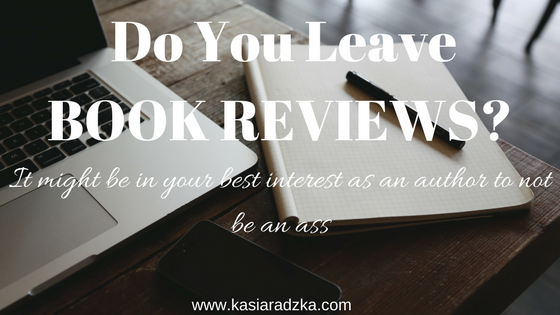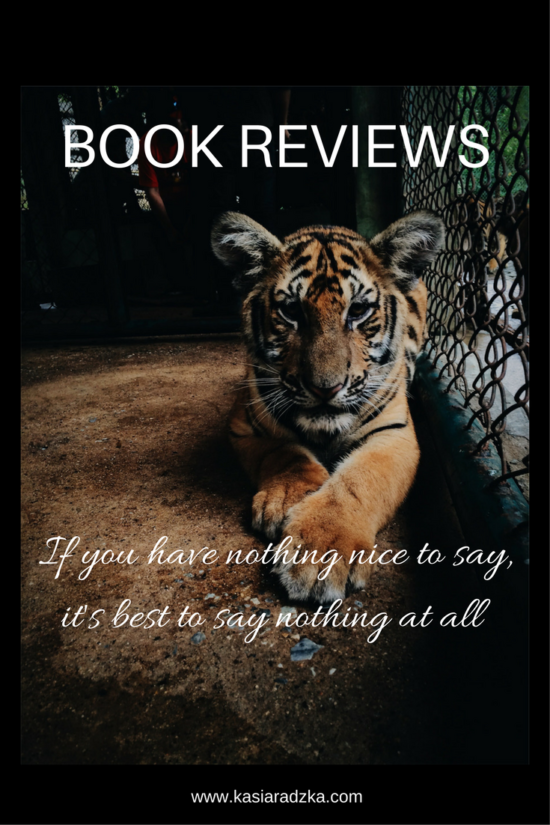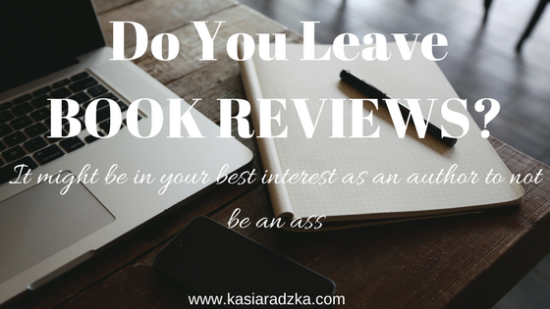“There was no full stop at the end of the sentence on page 245.”
“The book was predictable because the man and woman lived happily ever after.”
“The fantasy wasn’t realistic.”
“I couldn’t get past page 3.’
Here are some real dumb ass and hurtful comments I found on Goodreads for well-known authors.
1. “I could not read this. The prose is terrible. Commas are rare. Periods are abundant. I got through one chapter…” Killing Floor (Jack Reacher, #1) by Lee Child
The fact that the reader only got through one chapter he should not be reviewing the book. The fact that he paid $1 a piece might mean that he bought a pirated copy. Besides you’re not reading a book like Killing Floor for literary mastery – it’s entertainment, pure and simple. It was a long book but I enjoyed it.
2. “If I could give this no stars, I would. This is possibly one of my least favourite books in the world, one that I would happily take off the shelves and stow in dark corners where no one would ever have to read it again…” To Kill A Mockingbird by Harper Lee.
The last I heard, To Kill A Mockingbird, is a classic. It’s on my ‘to read’ shelf.
3. “Garbage. Absolutely horrifying, utter trash. A waste of trees, bookshelf space and precious, oh so very fucking precious brain cells…” Fifty Shades of Grey by EL James.
Whoever thought porn for women was ever going to mainstream? Yet EL James sold millions of books, has had the books made into movies, and is rewriting the books from the perspective of the male character. Reviews are subjective. Soz, but unless you’ve made squillions from your writing – keep the nasty to yourself. And even then, didn’t your parents ever teach you to not say anything unless you had something nice to say?
4. “This book is such a steaming pile of shit for so many reasons and hands down the worst book I have ever read….” Gone Girl by Gillian Flynn
And yet it became a motion picture and sold millions of copies.
5. “Recommends it for: no one…” The Secret History by Donna Tartt
This book won literary awards. Not every book is going to be everyone’s cup of tea.
As you can see, not even famous and prolific authors are immune to nasty reviews.
Reviews are a blessing and a curse. If you put your work out there you’re going to get reviewed at some point.
Personally, I won’t leave a review if I think a book is less than 3 stars. I’m happy to say that most of the books I have given a go have been above that.
Why do I only leave a review if I think a book is better than 3 stars?
- I’m an author and I know how sensitive creatives can be. There’s no need for me to publicly shame or hurt someone’s feelings. If I were to see way too many errors in a book then I’d politely email the author to give them a heads up, it would be their prerogative to leave the book as is or fix it. Once upon a time, someone did this for me and I was very grateful.
- There are enough trolls out there that take pleasure in trying to make others feel like shit. If their existence is so dull that they want to take it out on the world, well then, that’s their prerogative and the unfortunate side effect of anonymity on the internet.
- I might not have been the target audience for a book. I can’t comment on the quality of a fantasy or science fiction book because I don’t read too many of them. I love crime, thrillers, non-fiction and some chick lit though so I’m more likely to leave a review on those.
- I simply thought the book sucked. And you know what, I have a right to think that but that doesn’t mean that I have to share it publicly. If anyone asks my opinion I can give them an honest review but the things you write on the internet are going to stay there forever. I don’t want to create any bitter feuds with fellow authors or readers. Just because I don’t like the book, doesn’t make it a bad book.
- Writing is tough and wonderful at the same time. I know how hard and time-consuming it is to write a book. If you’ve made the sacrifices in your hectic schedule to pen a novel, be it genre fiction, literary or nonfiction, I salute you. If I can, I want to pull you up not push you down.
I hope that when someone reviews the books that they read that they too consider these points. Leaving nasty reviews is not conducive to any art form.
However, that doesn’t mean you can’t leave a one or two-star review. You can, just make sure that your comments lean towards the constructive rather than the malicious.
The same goes for beta readers. It’s possible to be critical without being nasty. Check out this piece I found on being a better beta reader –> How to be a better beta reader, and stop being an asshole
I’ve had people tell me that my books are good, great and not so good, just by the expression on their faces. They have a right to think any of those things.
As an author and a reasonable woman (one hopes!), I decide how I’m going to feel about their reviews and what the consequences will be. I also know that not everyone is going to love my books – even my mum is happy to tell me what she doesn’t like in my books! And that’s ok.
Because I have one major goal when I write a book:
To make each book better than its predecessor.
I hope that fellow authors have a similar goal.
This is the only thing we have control over, so we might as well work on improving our efforts to reduce the risk of bad reviews. The key word is to ‘reduce’ not eliminate. Thanks to trolls, we’ll never eliminate negative reviews.
I feel the same way when I run or do a triathlon. With each race I want to improve my performance whether that would be to finish in a better time, run a negative split (second half faster than the first), feel better when I finish, improve my technique. These are all little things that make a difference.
Writers need to be aware of similar improvements in their writing. It’s not just about how much money they’ll make or reviews they’ll get.
-
It’s improving their vocabulary and using the language in a more clever way.
-
It’s adding vibrancy to the setting with each story they write.
-
It’s about creating more realistic dialogue and making the characters in each book sound unique.
Sometimes the little things can make a huge difference.
By focusing on improving vocabulary, technique, setting, description, characters, and plot, authors will improve automatically on the entire package. The result will be a better book each time.
Yes, it’s important to write an entertaining book with no loose ends. Both grammar and spelling are important too. Your book needs editing regardless of what your mother, best friend, husband, next-door-neighbour thinks.
Regardless of how good your book is, even if it reaches the New York Times Bestseller list, you will be faced with negative reviews – sometimes for no reason at all.
-
If you can’t deal with it, don’t put your work out there.
-
Got a bad review? Don’t defend yourself because you will only make it worse.
-
If you leave a review, make it a positive one.
As you continue improving your stories you will slowly start growing a fan base. It might happen from book one, it might from book five.
Write for the right reasons and make sure you enjoy the process. It’s the only thing that you control. You can’t make readers love your books. So aim to write the best book you possibly can, then rinse and repeat.
Don’t worry about what others are doing. Write your own book, support your fellow authors, and hope that they will return the favour.
One thing I’ve noticed though is that you’re more likely to get bad reviews from trolls who are either too scared to publish their works, have received unfavourable reviews of their own, or want to crush your spirit to make themselves feel better.
You have zero control over that. The only control you have is not becoming one of them.
Regardless, bad reviews are part of a writers’ life.
Deal with it. Then move on.
6 Quick Tips For Leaving Book Reviews
1. Think before you hit publish. How would you really feel if you were the recipient of the review you’re about to post?
2. Is your review helpful to the author or reader? If it’s not, don’t post it.
3. Are you a fan of the genre? If you don’t normally read the genre you probably shouldn’t be posting a review.
4. Yes, you’re entitled to your opinion but doesn’t mean that the world is entitled to yours – especially if you’re trying to be hurtful. Think how you would feel if someone gave that review to your child for example?
5. Don’t lie just to make someone feel better. I hope that when friends read my books and leave a review that they are being honest. I’m not going to get upset if they don’t leave a review because they didn’t like it or give me three stars instead of five. I’ll value their honesty much more if they don’t bullshit me.
6. Have you actually read the book? You shouldn’t be leaving reviews if you’ve only read half the book.
–> Are You Naughty Or Nice When Writing Book Reviews? <–
Reviews are a necessary evil for a writer. Sometimes they will lift your spirits, other times they will sting like a knife to the heart.
The only thing you can do is treat other writers with the respect that you want to be treated with. Nothing less, nothing more.
And go write the best book you can!
Remember, as a writer you have the power to share and transform the world with your words. Make sure that your legacy as a writer, is a positive one.
Happy Writing & Reading!




This is great, Kasia, and so true! I’m going to share it!